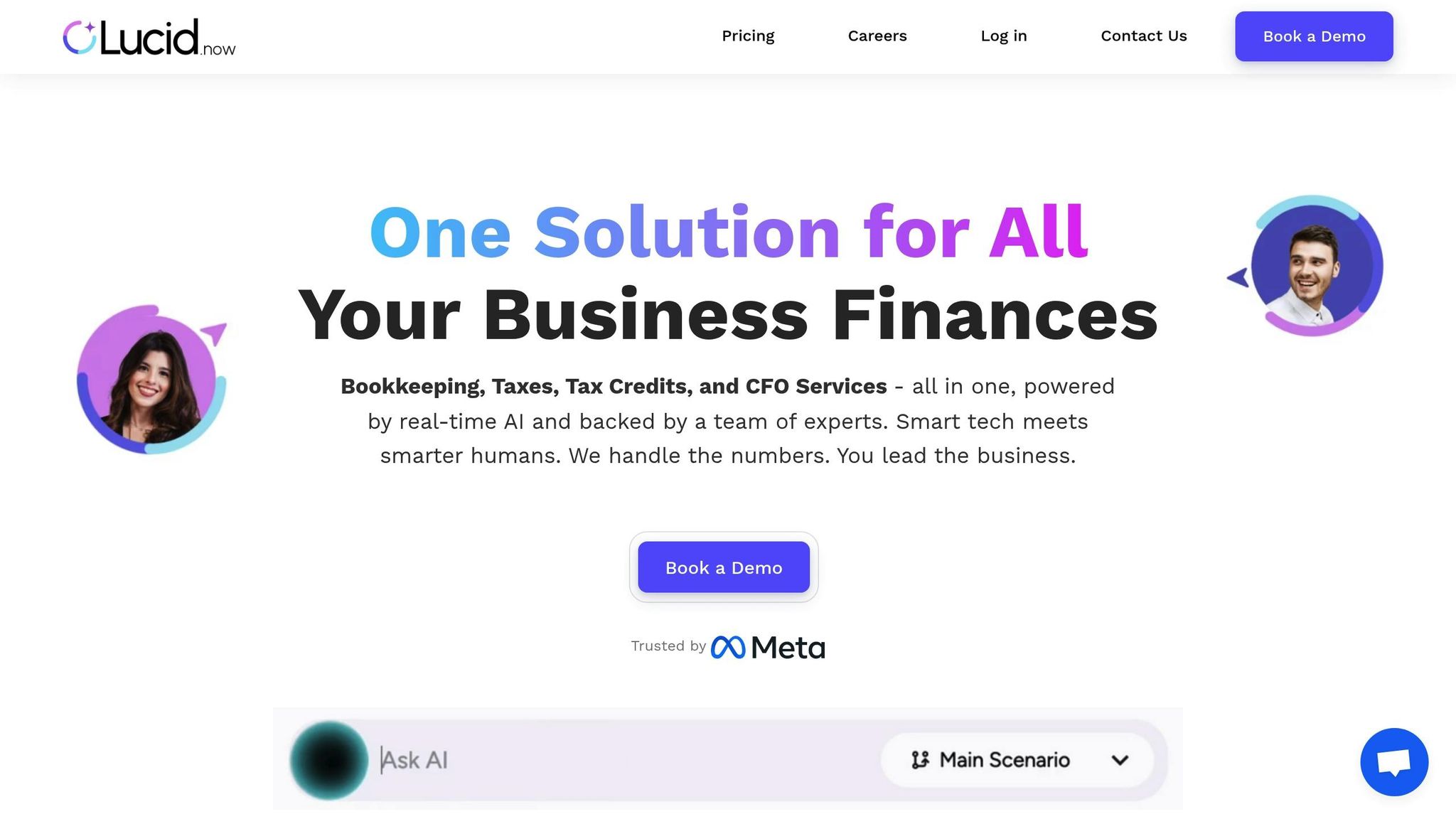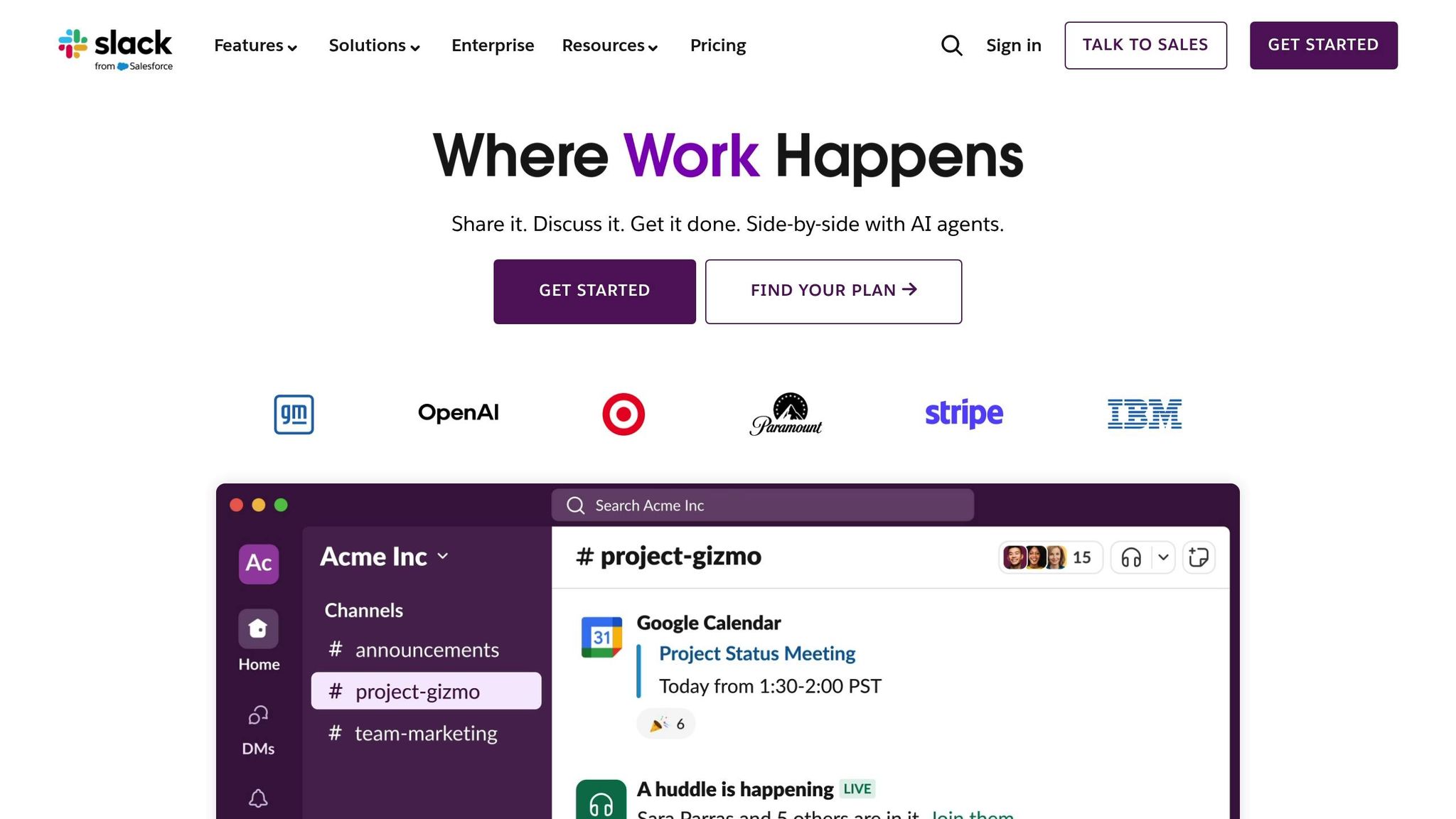Compliance tools are crucial for protecting financial data and ensuring businesses meet regulatory requirements. They simplify complex processes, reduce risks, and help avoid costly penalties. Here’s how they work:
- Real-Time Monitoring: Detects unusual activity, like failed logins or unexpected data transfers, and alerts you instantly.
- Automated Reporting: Generates accurate audit trails and compliance documentation, saving time and reducing human error.
- Granular Access Controls: Restricts data access based on roles, devices, and context, ensuring sensitive information stays secure.
- AI-Powered Insights: Identifies risks, flags anomalies, and offers recommendations to prevent violations.
- Regulatory Adaptation: Adjusts to new compliance rules automatically, keeping businesses up-to-date.
For startups, compliance tools are especially important when navigating regulations like SOX, PCI DSS, GLBA, and SEC requirements. They reduce the likelihood of fines, streamline audits, and build trust with investors. By automating tedious tasks, businesses can focus on growth while maintaining strong financial controls.
Revolutionizing Compliance: AI’s Role in Shaping The Future of Compliance Financial Institutions
How Compliance Tools Protect Financial Data
Modern compliance tools safeguard financial data with multiple layers of protection that work round the clock. These systems not only defend against potential threats but also simplify regulatory processes, allowing you to focus on business growth without constantly worrying about breaches. By combining proactive threat detection with streamlined compliance management, these tools create a robust security framework.
Real-Time Monitoring and Risk Detection
Think of real-time monitoring as your 24/7 security guard for financial data. These tools continuously watch for unusual activity - like odd login times, repeated failed access attempts, or unexpected data transfers. Instead of finding out about a breach weeks later during an audit, these systems can notify you within minutes of suspicious behavior.
When new threats arise or system updates create vulnerabilities, compliance tools quickly assess the impact and ensure your data stays secure. This proactive approach helps you stay ahead of potential risks.
Automated Reporting and Audit Readiness
Automated reporting takes the stress out of preparing for audits. These tools automatically generate detailed records of transactions, access events, and system changes - giving you a complete audit trail without the hassle of manual tracking. By eliminating human error, they ensure your reports are accurate and ready whenever needed.
With standardized formats and consistent reporting, compliance tools make audits less daunting. Whether you're preparing for tax season or responding to investor inquiries, these tools ensure all necessary documentation is already organized, showcasing your strong financial controls.
Granular Access Controls
Not everyone in your organization needs access to sensitive financial data. Granular access controls limit who can view or modify information based on their role, the time of access, the device used, and the context. This approach follows the Principle of Least Privilege, ensuring employees only get the permissions they need to do their jobs.
These tools also adapt to unusual scenarios, like access attempts from unfamiliar locations, by requiring additional verification. Features like multi-factor authentication and temporary access options add extra layers of security, automatically revoking permissions once tasks are completed. This ensures your data remains protected, even in complex situations.
Key US Regulations That Affect Startups
For startups, navigating regulations is a critical part of the journey - especially in the fintech world, which was valued at $179 billion in 2023 and is expected to hit $376 billion by 2026. Regulatory challenges are no small matter, contributing to 18% of startup failures.
The regulations your startup needs to follow depend on factors like your industry, business model, geographic reach, and whether you offer credit to customers. Many fintech startups partner with established banks to provide financial products. While this can simplify some operations, it also means your startup becomes indirectly accountable to the bank's regulators. Below are some of the most important US regulations that startups need to understand.
Major Regulatory Frameworks
Sarbanes-Oxley Act (SOX)
If your startup plans to go public, SOX is a big deal. This law requires strict internal controls over financial reporting, including documented processes and regular testing. While it primarily applies to public companies, startups aiming for an IPO need to prepare early.
Payment Card Industry Data Security Standard (PCI DSS)
Any startup handling credit card transactions must comply with PCI DSS. This framework focuses on securing networks, encrypting data, and conducting regular security tests. Even if you rely on third-party payment processors, your systems must remain PCI-compliant.
Gramm-Leach-Bliley Act (GLBA)
Startups offering financial services or advice fall under GLBA. This law requires you to protect customer financial data and inform users about your privacy practices. It also mandates annual privacy notices and gives customers the option to opt out of data sharing.
Securities and Exchange Commission (SEC) Requirements
SEC regulations are crucial for startups raising capital or offering investment products. These rules govern everything from how you communicate with investors to your financial disclosures. If you're involved in equity crowdfunding or act as an investment advisor, expect strict oversight.
Failing to comply with these regulations can be costly. Over 60% of fintech startups paid at least $250,000 in compliance fines in 2023. And the risks don’t stop there - financial firms face higher costs from data breaches, averaging $6.08 million per breach, compared to the global average of $4.88 million.
How Compliance Tools Simplify Regulatory Requirements
Keeping up with regulations can feel overwhelming, but modern compliance tools are making it easier. These tools streamline enforcement and reporting, turning what might seem like a burden into a manageable, automated process.
By embedding regulatory frameworks into your startup’s daily operations, these tools take the guesswork out of compliance. They can enforce policies automatically, flag unusual activity, and ensure approval workflows are followed. This reduces human error and keeps compliance consistent across your team.
When it comes to audits, compliance tools save time by automating data collection and generating reports in the required formats. Instead of scrambling to gather information, you’ll have organized records ready to go.
Another big advantage? These tools adapt to regulatory changes. When new rules are introduced or existing ones are updated, the system adjusts its monitoring and reporting features automatically, helping your startup stay ahead of the curve.
Despite these advancements, many companies still underinvest in cybersecurity. In 2023, 70% of financial organizations believed they were spending too little on cybersecurity, up from 58% in 2020.
sbb-itb-17e8ec9
Key Features of Modern Compliance Tools
Modern compliance tools go beyond the old-school checklist approach. With advanced technology, these tools tackle the intricate challenges startups face in managing financial data and regulatory obligations. Instead of being a reactive burden, they turn compliance into a proactive advantage for businesses.
AI-Driven Risk Management and Insights
Artificial intelligence has completely changed how risks are identified and managed in compliance. Rather than waiting for issues to arise, AI systems monitor patterns in real-time, catching potential problems before they escalate into costly violations.
- Pattern Recognition and Anomaly Detection: These systems continuously scan financial transactions and user activities, flagging anything unusual - like access during odd hours or irregular transaction amounts - right away.
- Predictive Risk Scoring: By analyzing historical data, regulatory updates, and industry trends, AI assigns risk scores to activities and processes, helping teams focus on areas that matter most.
- Real-Time Decision Support: AI tools provide instant compliance advice during critical moments, such as processing large transactions or onboarding new clients. This helps prevent violations from happening rather than catching them during audits.
Beyond flagging risks, these tools also educate teams by offering context and actionable steps to mitigate potential issues. This not only resolves immediate concerns but also builds a stronger understanding of compliance across the organization.
Custom Reporting for Different Stakeholders
Modern compliance tools excel at creating tailored reports for various audiences - whether it’s investors, regulators, management, or board members - each with their own priorities.
- Investor-Focused Reports: These highlight financial health, risk management, and compliance status. They often include performance metrics and risk assessments, giving investors confidence in the company’s operations and growth prospects.
- Regulatory Reports: Automatically formatted for specific agencies, these reports, such as SOX or PCI DSS documentation, reduce manual work and minimize submission errors.
- Internal Management Dashboards: These provide managers with real-time insights into compliance activities, resource allocation, and progress toward goals.
- Board-Level Summaries: Simplified overviews for executives, focusing on major risks, mitigation strategies, and the broader implications of compliance efforts, enabling informed decision-making.
These customizable reports not only save time but also boost audit readiness by aligning seamlessly with automated documentation processes. Organizations can tailor metrics, visuals, and delivery schedules to meet the unique needs of each stakeholder group.
Continuous Monitoring and Data Tracking
Continuous monitoring is another standout feature, offering real-time oversight of financial data. Unlike traditional methods that relied on periodic audits, this approach ensures no gaps where violations might go unnoticed.
- Real-Time Data Flow Monitoring: Tracks how data moves, who accesses it, and what changes are made, creating a complete audit trail essential for compliance and investigations.
- Automated Change Detection: Instantly flags unauthorized changes, deletions, or access to records. Version histories and comparisons with previous states help maintain data integrity and uncover potential fraud.
- Cross-System Integration: Ensures all platforms and applications handling financial data are monitored, breaking down silos for comprehensive oversight.
- Behavioral Analytics: Establishes normal patterns and alerts teams to deviations, catching sophisticated threats that might evade traditional monitoring.
This continuous oversight allows compliance teams to act immediately, rather than discovering issues weeks or months later during routine reviews. It also supports automation by triggering responses - like requiring extra authentication or restricting access - when unusual activity is detected. This proactive approach not only reduces the impact of violations but also demonstrates a serious commitment to compliance in the eyes of regulators.
How Lucid Financials Supports Compliance and Data Security

Lucid Financials brings together AI-driven automation and human expertise to tackle compliance challenges faced by startups and rapidly growing companies. Beyond just meeting compliance needs, the platform prioritizes top-notch data security, ensuring businesses can operate confidently. Let’s dive into how Lucid fine-tunes its features to support startups.
AI-Powered Compliance Automation
Lucid’s AI engine takes over repetitive compliance tasks, making processes faster and more efficient. It handles everything from transaction matching and account reconciliation to spotting potential issues early on. It even goes a step further by identifying tax credit opportunities, such as R&D credits, that startups might otherwise miss.
The platform’s real-time monitoring is another standout feature. For instance, if there’s an unusually large equipment purchase or an unexpected international payment, the system flags it for review. It also ensures all necessary documentation is properly maintained, creating a reliable audit trail.
What makes Lucid particularly effective is its ability to adapt to each business. Whether you’re running a SaaS startup or manufacturing hardware, the system learns your financial patterns. This means fewer unnecessary alerts and more insights tailored to your specific operations.
Real-Time Support Through Slack Integration

Lucid takes compliance support to the next level with Slack integration. Founders and teams can ask compliance-related questions directly in Slack and get immediate answers from the AI assistant. If the issue is complex, the system quickly escalates it to a human expert.
This instant guidance proves invaluable during critical moments, like managing large vendor payments, navigating complex equity transactions, or preparing for investor meetings. The AI assistant also provides advice on documentation, tax requirements, and regulatory guidelines, ensuring startups avoid costly mistakes. On top of that, proactive alerts about deadlines and regulatory changes keep founders informed, all through their preferred communication tool.
Investor-Ready Reports and Audit Preparation
Lucid ensures startups are ready for investors and audits from day one. Within just seven days of onboarding, the platform organizes historical financial data into audit-ready, investor-grade reports.
The system’s always-on reporting feature delivers board-level statements and compliance summaries at a moment’s notice. When it comes to audits, Lucid streamlines the process by keeping all financial records and compliance activities meticulously documented and easily accessible. This minimizes the stress and time investment typically associated with formal audits.
Conclusion: Building Trust with Compliance Tools
For startups navigating the intricate world of regulations, compliance tools aren't just helpful - they're essential. Consider this: organizations that rely heavily on automation experience average data breach costs of $3.84 million, compared to $5.72 million for those without automation. That’s a striking $1.88 million in savings on average. For startups operating within tight financial constraints, those savings can be the difference between scaling up or hitting a plateau.
Automation also eliminates the pitfalls of manual processes, which are often riddled with errors. With human mistakes accounting for nearly 74% of compliance failures, automated systems bring the precision and reliability manual efforts simply can’t achieve. Beyond accuracy, automation slashes compliance costs and significantly reduces the time spent on risk assessments.
But the benefits of automation go beyond just saving money and time. It enables startups to redirect their focus toward innovation and growth. Instead of tying up resources in tedious compliance tasks, they can channel their energy into developing products and expanding their market reach. This is especially critical when you consider that 29% of organizations lost new business opportunities in 2023 due to missing compliance certifications.
Take Lucid Financials as an example. Using AI-driven automation, Lucid Financials has streamlined compliance processes while safeguarding financial data. Tools like these showcase how modern compliance platforms can turn what feels like a regulatory burden into a strategic advantage. With features like real-time monitoring, automated reporting, and the added layer of expert human oversight, these platforms don’t just protect sensitive data - they lay the groundwork for sustainable growth and inspire investor confidence.
FAQs
How do compliance tools keep up with changing regulations, and why does this matter for startups?
Compliance tools rely on automation and real-time monitoring to keep up with ever-changing regulations, ensuring businesses remain aligned with the latest legal requirements. These tools constantly track updates to laws and standards, enabling organizations to implement changes promptly without causing operational interruptions.
For startups, this flexibility is especially important. It helps lower the risk of non-compliance, cuts down on potential fines, and conserves both time and resources. By simplifying compliance tasks, startups can concentrate on scaling their business and driving innovation while managing the complexities of regulatory demands with ease.
How do AI-powered compliance tools help reduce risks and prevent regulatory violations?
AI-driven compliance tools are transforming how businesses manage risks and meet regulatory standards by simplifying and automating complex tasks. These tools can swiftly process regulatory updates, pinpoint potential issues, and flag violations in real time. This enables companies to address problems early, minimizing the risk of fines, legal troubles, and damage to their reputation.
One standout feature of these tools is their use of predictive analytics. By analyzing patterns, they can spot early warning signs of non-compliance, giving organizations the chance to act before small issues become major problems. This mix of automation and intelligent insights helps businesses protect sensitive financial data and adapt to ever-changing regulations with confidence.
Why should startups prioritize compliance tools to build investor trust and navigate regulatory challenges?
Startups need to make compliance tools a priority because they showcase a dedication to following regulations and protecting data, which plays a huge role in building trust with investors. That trust can often be the deciding factor in securing funding and forming solid, long-term partnerships.
Beyond that, compliance tools help startups navigate the maze of U.S. regulations, including tax rules, licensing requirements, and data privacy laws. By minimizing the risk of legal trouble and promoting transparency, these tools create a stable foundation for growth, freeing founders to concentrate on scaling their businesses.


